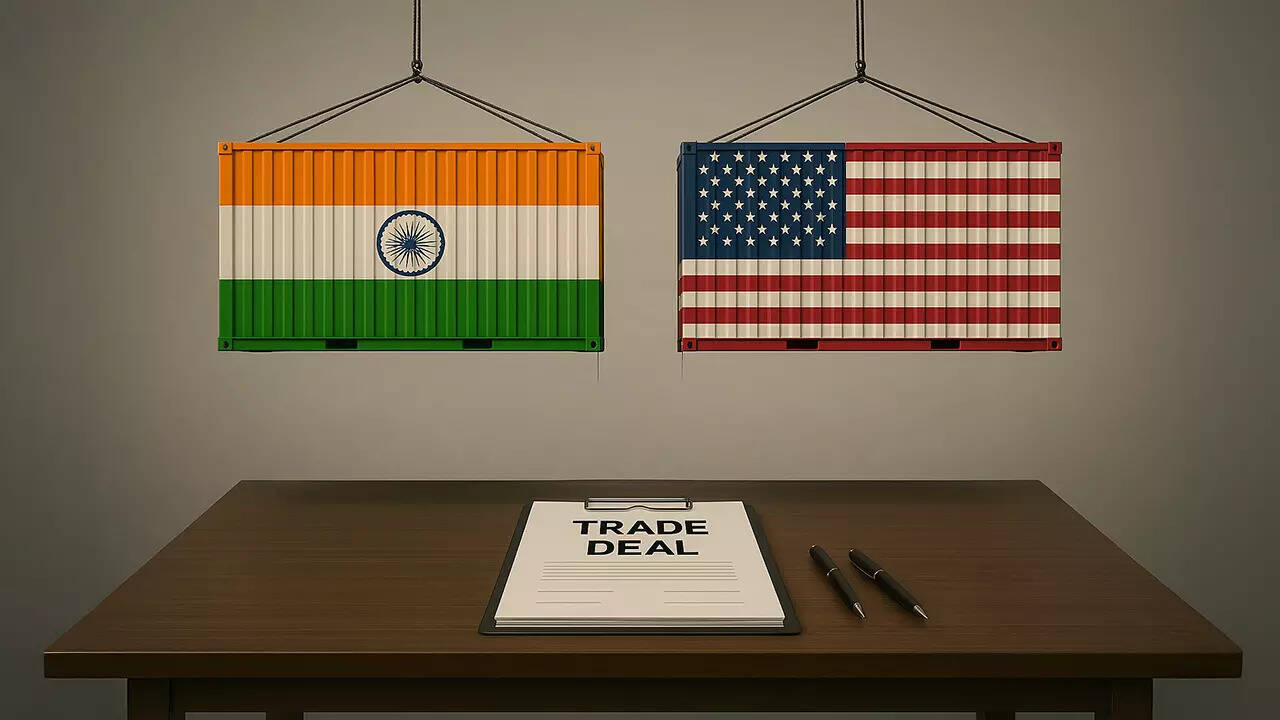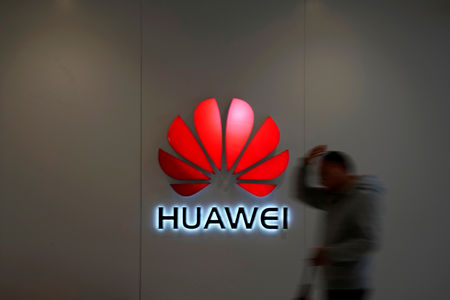See what’s trending right now
China Economyin Financial Markets
3 hours agoUS and China may extend tariff talks amid tensions as Microsoft warns of Chinese hackers exploiting a SharePoint flaw, highlighting cybersecurity risks.
Show me
Financial Markets
US, China to discuss tariff deadline extension in Stockholm, Bessent says
NeutralFinancial Markets
The U.S. and China are set to negotiate a possible extension of tariff deadlines during talks in Stockholm, according to Bessent. This signals ongoing efforts to ease trade tensions between the two economic giants, though no concrete agreement has been reached yet.
Editor’s Note: Trade tensions between the U.S. and China have been a major economic headache for years, affecting everything from consumer prices to global supply chains. If they extend tariff deadlines, it could buy more time for negotiations—avoiding immediate disruptions but keeping uncertainty alive. For businesses and investors, this means watching closely to see if real progress emerges or if it’s just another temporary pause.
Microsoft: Chinese Hackers Exploiting SharePoint Flaw
NegativeFinancial Markets
Microsoft is calling out Chinese hackers linked to the government for taking advantage of a security weakness in SharePoint, its widely used document-sharing platform. The company says these groups are actively using the flaw to carry out cyberattacks. Bloomberg’s tech team discussed the implications on air.
Editor’s Note: This isn’t just another tech vulnerability—it’s a high-stakes security issue with geopolitical undertones. When state-backed hackers exploit widely used software like SharePoint, it puts businesses, governments, and even regular users at risk. It’s a reminder that cyber conflicts are playing out in the background of everyday tech, and companies (or countries) caught in the middle need to stay alert.
Microsoft accuses Chinese hackers of exploiting SharePoint software
NegativeFinancial Markets
Microsoft says a group of Chinese hackers has been exploiting vulnerabilities in its SharePoint software to target US government agencies, universities, and energy companies. The breach highlights ongoing cyber-espionage risks, with sensitive systems potentially compromised.
Editor’s Note: This isn’t just another tech security alert—it’s a reminder that state-backed hackers are constantly probing critical infrastructure. When big players like Microsoft call out foreign actors, it signals serious concerns about national security and corporate defenses. If you work in government, education, or energy, this one’s worth paying attention to.
China’s new champion? Jiangsu narrows gap with Guangdong for top provincial GDP
PositiveFinancial Markets
Jiangsu is catching up to Guangdong as China's top provincial economy, shrinking the GDP gap to just 2.56% in early 2025. Fueled by tech growth, Jiangsu has cut the difference between them by nearly $2 billion compared to last year—making this the tightest race in years.
Editor’s Note: This isn’t just about bragging rights—it signals a shift in China’s economic landscape. Guangdong has long been the undisputed leader, but Jiangsu’s tech-heavy approach is proving competitive. If this trend holds, it could reshape investment flows, policy priorities, and even regional rivalries within the country.
India's share in US imports inches up
PositiveFinancial Markets
India is slowly increasing its slice of the US import pie, according to recent data. While China still dominates, India’s exports to America—think everything from textiles to tech components—are creeping upward. It’s not a seismic shift, but it hints at subtle changes in global trade dynamics, possibly fueled by companies diversifying supply chains away from China.
Editor’s Note: This isn’t just about numbers—it’s a sign of India’s growing role in global trade. With geopolitical tensions and supply chain headaches pushing businesses to look beyond China, India’s steady rise in US imports could mean more jobs, investment, and clout for its economy. For everyday folks, it might translate to more "Made in India" products on shelves—and maybe even stronger economic ties between the two countries down the line.
China’s Overcapacity Drive Faces Stubborn Oil-Refiner Revival
NeutralFinancial Markets
Despite Beijing's push to curb excess industrial capacity, China's oil refiners are proving resilient, bouncing back just as the government tries to rein them in. It’s a classic case of an industry adapting faster than policymakers can control it—raising questions about how effective these measures will be in the long run.
Editor’s Note: This isn’t just about oil—it’s a sign of the broader tug-of-war between China’s economic planners and industries that have their own survival instincts. If refineries keep dodging overcapacity crackdowns, it could signal deeper challenges in restructuring China’s industrial backbone, with ripple effects for global energy markets.
China Q2 smartphone shipments down 2.4%, Apple dips while Huawei gains
NeutralFinancial Markets
China's smartphone market had a sluggish second quarter, with overall shipments dropping 2.4% compared to last year. Apple took a hit, seeing its numbers dip, while Huawei managed to buck the trend with noticeable growth. It’s a mixed bag—some brands are struggling, others are gaining ground, but the broader market is still cooling off.
Editor’s Note: Smartphone sales are a good barometer of consumer spending and tech trends, especially in a huge market like China. Apple’s dip suggests it might be losing some momentum against local rivals, while Huawei’s rebound—despite past challenges—shows it’s still a player. If you’re into tech or investing, this kind of shift could hint at where the industry’s headed next.
China's Q2 smartphone shipments down 2.4%, says Counterpoint
NegativeFinancial Markets
China's smartphone market took another small hit last quarter, with shipments dropping 2.4% year-over-year according to industry tracker Counterpoint. It's not a dramatic plunge, but it continues the sluggish trend we've seen as consumers hold onto devices longer and economic uncertainty lingers.
Editor’s Note: Smartphones aren't the must-upgrade items they used to be. This dip reflects broader caution—people are tightening budgets, and without groundbreaking new features, they're happy to keep using older models. For brands, it's a wake-up call to either innovate or compete harder on value.
China’s $167 Billion Dam Project Fuels Optimism in Metal Stocks in India
PositiveFinancial Markets
China’s massive $167 billion dam project is sparking excitement in India’s metal sector, as investors bet on rising demand for materials like steel and aluminum. The ripple effect of China’s infrastructure push could mean big business for Indian metal producers, driving up stock prices even before the market opens.
Editor’s Note: Big infrastructure projects halfway across the world can shake up local markets in unexpected ways. For Indian metal stocks, China’s spending spree isn’t just a distant headline—it’s a potential goldmine. If you’re tracking market trends, this is a sign of how global supply chains and investor optimism are tightly linked.
Why World Pulse Now?
Global Coverage
All major sources, one page
Emotional Lens
Feel the mood behind headlines
Trending Topics
Know what’s trending, globally
Read Less, Know More
Get summaries. Save time
Stay informed, save time
Learn moreLive Stats
Articles Processed
9,271
Trending Topics
147
Sources Monitored
191
Last Updated
3 hours ago
Live data processing
How it works1-Minute Daily Briefing
Stay sharp in 60 seconds. Get concise summaries of today’s biggest stories — markets, tech, sports, and more
Why World Pulse Now?
Global Coverage
All major sources, one page
Emotional Lens
Feel the mood behind headlines
Trending Topics
Know what’s trending, globally
Read Less, Know More
Get summaries. Save time
Stay informed, save time
Learn moreLive Stats
Articles Processed
9,271
Trending Topics
147
Sources Monitored
191
Last Updated
3 hours ago
Live data processing
How it works1-Minute Daily Briefing
Stay sharp in 60 seconds. Get concise summaries of today’s biggest stories — markets, tech, sports, and more








